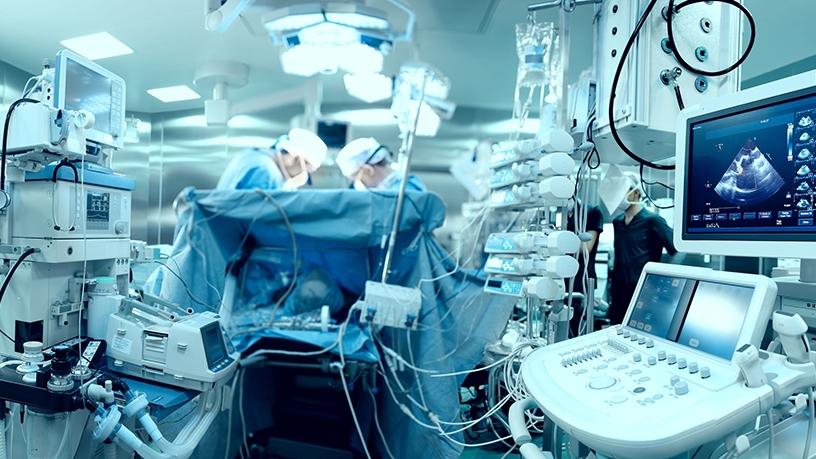
Healthcare services are expected to have gone through a huge technological evolution by 2030, with artificial intelligence (AI), robotics and self-diagnosis Internet of things (IOT) tools playing a significant role.
This is according to the "Building the Hospital of 2030" research conducted by Aruba, a Hewlett Packard Enterprise company.
According to the report, within the next 10 years, an average medical check-up could involve more interaction with sensors, cameras and robotic scanning devices than human doctors and nurses, as healthcare organisations advance services around IOT, AI and robotics.
The report highlights both the likelihood and need for the healthcare industry to create smarter workplaces that incorporate mobile, cloud and IOT technology, and explores the ways in which this will transform the patient experience and improve clinical care.
Interviews with global senior healthcare leaders and futurologists were undertaken as part of the research.
The study found the rise of wearable medical tools and self-diagnostic and monitoring apps will create a shift in culture by empowering the patient to take control of their own health.
Using app-based and wearable self-diagnosis tools to monitor health and even carry out their own scans, patients will finally have the ability to self-diagnose a wide number of conditions at home, without needing to visit a surgery or hospital, it adds.
"A patient becomes ill, is admitted to hospital and sent for tests; that has been the norm in modern healthcare. Yet that could be changing, thanks to wearable technology and apps that have the potential to take much of the testing and monitoring burden away from hospitals and into the home," says Maneesh Juneja, a digital health futurist who explores the convergence of emerging technologies.
"Once you've been diagnosed, a lot of the monitoring of how you're taking your medication could be done without the healthcare system seeing you as frequently, through real-time data tracking."
The study further found that 64% of healthcare organisations around the globe have begun to connect patient monitors to their networks. Such technologies have the potential not only to improve e?ciency of care in the hospital, but to signi?cantly reduce future hospital visits, shifting the burden of diagnosis and monitoring away from healthcare providers.
IDC's Worldwide Quarterly Wearable Device Tracker predicts the wearables market is forecast to maintain a steady pace of growth, with shipments expected to reach 229.5 million units in 2021, pushed by healthcare use purposes such as activity trackers and data collection.
Experts say the global health sector is on the cusp of a step change that will benefit the industry through the better use of data and advances in analytics.
SA has an estimated R350 billion annual healthcare industry, with the Department of Health moving towards e-health solutions in line with the World Health Organisation guidelines, says Vanessa Korb, business development at Keyrus SA.
In terms of AI's ability to enhance medical care within health institutions, the Aruba report points out that AI will play an increasing role in diagnosis and treatment of medical conditions, with public support expected to grow to the extent that patients will be willing to be diagnosed by machines; provided that services are designed and implemented around patients, and the benefits are explained.
University College London professor Dr Hugh Montgomery explains: "Within 10 years, you may be able to examine around 50 000 different blood proteins from a single drop, and make much quicker, or even automatic, diagnoses through the use of AI. That's radical and in no way happens at the moment. I might get 30 variables, today."
Healthcare institutions are also expected to be fully digital in the next decade, with hospital check-ins predicted to feature imaging technology that can assess the patient's heart rate, temperature and respiratory rate from the moment they walk in.
"We're in for a massive transformation and disruption in the next five to10 years for two reasons. Firstly, the technology's changing that fast, and secondly, there's this massive pressure to get it out there. Because if we don't, health services are going to fall over," comments Montgomery.
However, the report notes the barriers to achieving a digitised health service are signi?cant, and many. Regulations must be adhered to, patients consulted with, and with the addition of every connected device comes the risk of a data security breach. These concerns must not be ignored, but neither can they be allowed to stand in the way of progress.
Share